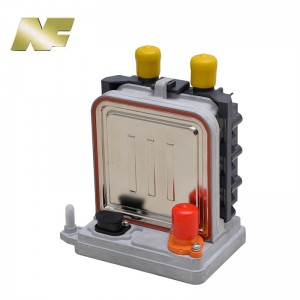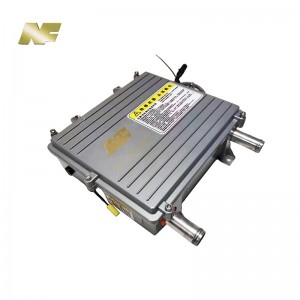As the world shifts towards a more sustainable future, electric vehicles (EVs) are becoming increasingly popular for their environmental benefits and energy efficiency. However, one of the challenges facing electric vehicles is the need to maintain optimal battery performance, especially in cold weather conditions. This is where battery coolant heaters and high-voltage PTC heaters play a key role in ensuring efficient operation of electric vehicles.
Battery coolant heaters, also known as high-voltage PTC (positive temperature coefficient) heaters, are an important component of electric vehicles, especially in areas with cold climates. These heaters are designed to regulate the temperature of the battery pack and chamber, ensuring the battery is operating within an optimal temperature range for improved performance and longevity.
In cold weather, a battery’s efficiency can be significantly reduced if the proper temperature is not maintained. Low temperatures cause the battery’s internal resistance to increase, affecting its ability to deliver power and energy. This is where battery coolant heaters come in, as they maintain the battery temperature within the ideal range, ensuring that the battery delivers the required power and range regardless of external conditions.
High-voltage PTC heaters are particularly effective at this because they use the PTC effect to automatically adjust power output based on battery temperature. As the temperature drops, the resistance of the PTC material increases, resulting in a higher heat output to warm the battery. Conversely, as temperature increases, resistance decreases, thereby reducing heat output to prevent overheating. This self-regulating feature makes EV PTC heaters an efficient and reliable solution for maintaining optimal battery temperatures in electric vehicles.
In addition, these heaters play a vital role in ensuring passenger comfort by providing efficient cabin heating in electric vehicles. High-voltage PTC heaters use waste heat generated by batteries and power electronics to effectively heat the cabin without relying on the vehicle’s main heating system, thereby reducing energy consumption and extending the vehicle’s driving range.
In addition to temperature regulation, battery coolant heaters and high-voltage PTC heaters contribute to the overall safety of electric vehicles. By keeping batteries at optimal temperatures, these heaters help prevent thermal runaway and other safety hazards associated with extreme temperature conditions. This is especially important for electric vehicles because the battery is a key component of the vehicle’s powertrain.
In addition, the use of high-voltage PTC heaters in electric vehicles is consistent with the industry’s focus on energy efficiency and sustainability. These heaters are designed to operate efficiently, minimizing energy waste and reducing the overall environmental impact of electric vehicles. By optimizing the use of waste heat and regulating battery and cabin temperatures, high-voltage PTC heaters help improve the overall energy efficiency of electric vehicles, making them a key enabler of sustainable transportation solutions.
As the demand for electric vehicles continues to grow, the importance of battery coolant heaters and high-voltage PTC heaters in ensuring optimal performance and safety of electric vehicles cannot be overstated. These components play a key role in addressing the challenges associated with cold weather operation while also helping to improve the overall efficiency and sustainability of electric vehicles.
In summary, battery coolant heaters and high-voltage PTC heaters are important components of electric vehicles, used to regulate the temperature of the battery pack and cab, ensure passenger comfort, and improve the overall safety and efficiency of electric vehicles. As the automotive industry continues to embrace electrification, the development and integration of advanced heating solutions is critical to driving widespread adoption of electric vehicles and shaping the future of sustainable transportation.
Post time: Mar-26-2024







